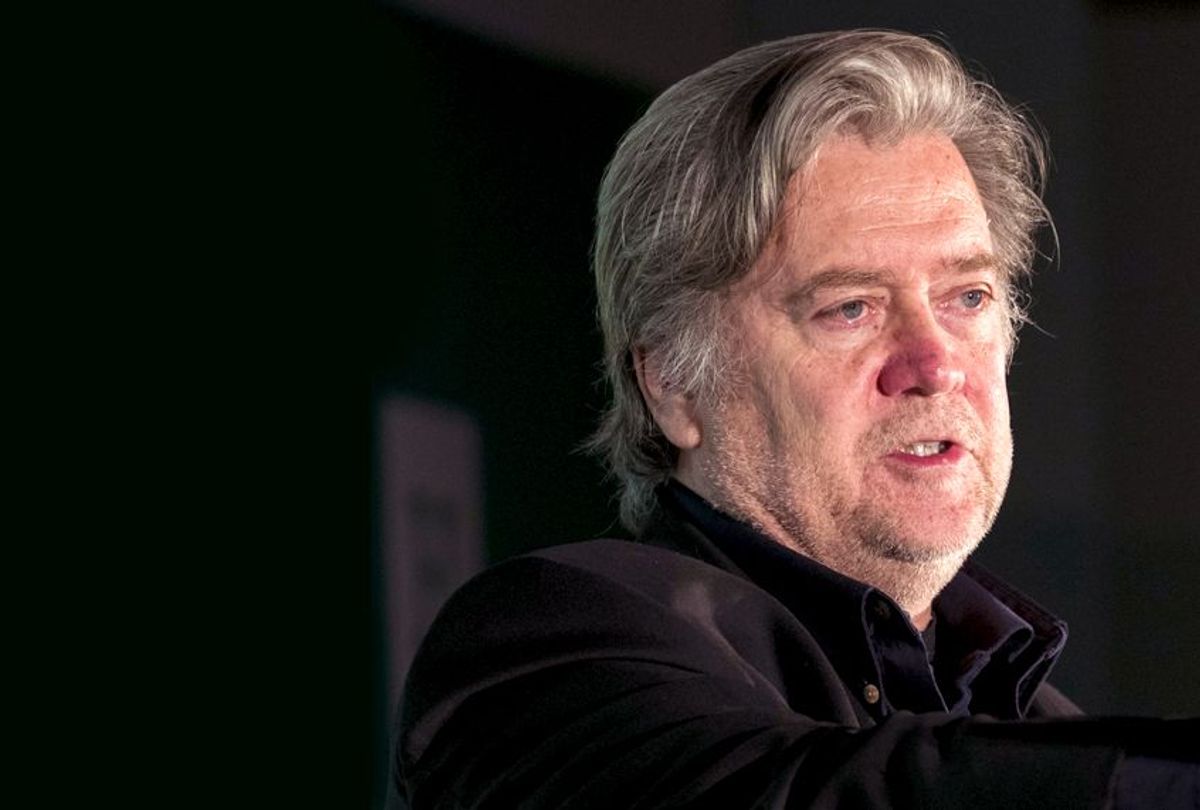When former White House adviser Steve Bannon went to Congress this week to testify about what he knew about the Trump campaign's interactions with Russia last year, he didn't say much. While the move angered members of the House Intelligence Committee, it may have opened up a legal can of worms.
Bannon was in direct communication with the White House lawyers during the testimony, though the administration has been unclear as to why he refused to answer almost all questions during his appearance.
In an interview with Fox News on Wednesday, White House Chief of Staff John Kelly flat-out denied that the administration had directed Bannon to claim executive privilege during his testimony.
“No, no,” Kelly said when Fox anchor Bret Baier asked him if Trump had directed him to claim executive privilege.
But in a comment to Axios, Bannon’s lawyer Bill Burck said that he was informed by administration attorneys that they did not want Bannon to provide any detailed answers just yet:
“We were told by White House lawyers that Mr. Bannon was not authorized to speak about his time on the transition or in the White House until the Committee and the White House agreed on the proper scope of questioning," Burck said. "Perhaps [Kelly is] saying that the White House did not ask Mr. Bannon to invoke executive privilege in the formal legal sense.”
Whatever label one may wish to place upon Bannon’s lack of cooperation, it was reportedly at the behest of Trump himself, Foreign Policy magazine reported Thursday.
During his testimony, frustrated members of the House Intelligence Committee formally served Bannon with a subpoena after it became apparent that he was not giving specific answers to questions. Bannon has agreed to an interview with special counsel Robert Mueller, where it will be harder for him to claim executive privilege.
As a legal issue, presidential claims of refusing to provide certain information on grounds of executive privilege has existed since the administration of George Washington. In the Russian interference matter under investigation by Mueller and three congressional committees, whether Bannon and other former and current Trump employees can make such claims is not a settled issue, according to Peter M. Shane, a law professor at Ohio State University who has written extensively on separation of powers issues within the Constitution.
Up until now, congressional committees have generally not accepted informal claims of executive privilege, Shane told Salon.
“I don’t know if it would be unprecedented but it would certainly be very unusual for a congressional committee to say ‘well they might claim executive privilege someday so that's enough for us.’”
Attorney General Jeff Sessions had made similar vague assertions in congressional hearings as well. As in the case of Bannon’s testimony, neither Sessions nor the White House provided a written notice to questioning senators, that the administration was going to invoke executive privilege.
“If members of these committees have allegiance to the powers of the legislative branch, they should not allow these vague claims of privilege to be claimed, they should insist on it formally,” Shane said. “For better or worse, we seem to have separation of parties instead of separation of powers.”



Shares